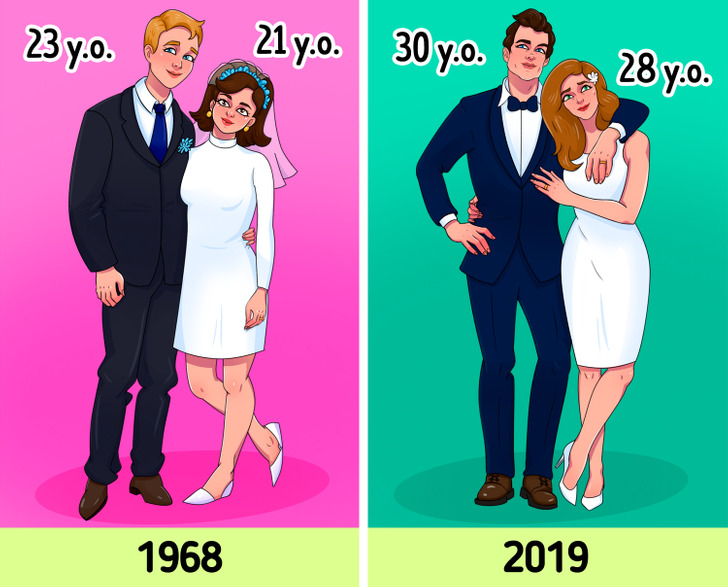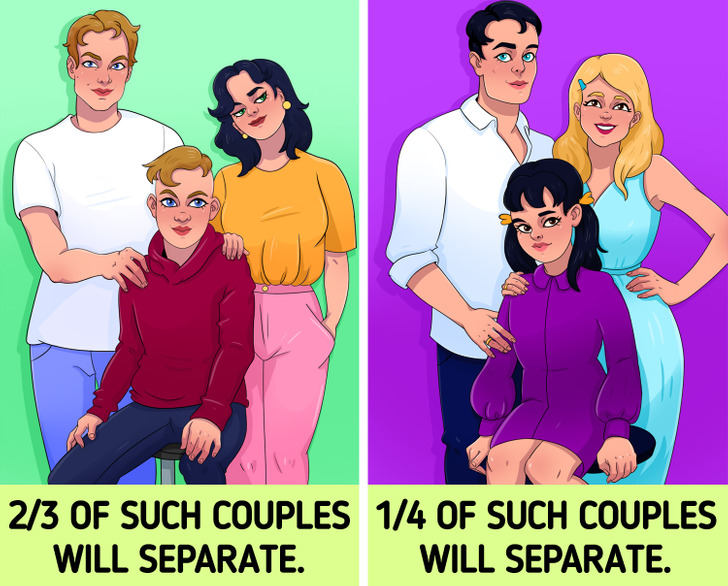Why Fewer People Are Getting Married These Days

The benefits of marriage are numerous and well-known. Researchers associate it with higher levels of happiness and financial well-being, increased life expectancy, and fewer crimes. However, despite all these benefits, people around the world tend to gradually lose interest in marriage.
5-Minute Crafts studied some statistics and found the reasons why many men and women don’t want to get married. We also found out what this can lead to in the future.
What the statistics tell us

The Pew Research Center conducted a data analysis in 2020 to find out how millennials feel about marriage. Millennials in this report are people who turn 26 to 41 in 2022.
The majority of millennials are currently unmarried, unlike previous generations. Only 3 out of 10 live with a spouse and a child. Most often, people of this age category prefer just living together without getting married.
If millennials do marry, they do this much later in life compared to previous generations. The median age upon the first marriage has been gradually increasing in recent decades. In 2019, a man married at age 30 for the first time, and a woman married at 28. This is 3 years later (for both men and women) than in 2003, 4 years later than in 1987, and 7 years later than in 1968.
The reasons behind it

- A large number of divorces: The experience of seeing parents go through a painful divorce gives young people cold feet. Nowadays, more and more children are growing up in conditions where parents have separated.
- Freedom of choice: People feel happy knowing that they can choose whether they want to get married or not. This effect is enhanced by the fact that their parents or grandparents were not given this opportunity — in the past, marriage was a kind of obligation.
- The cost of a wedding: The ceremony can be very expensive. And young people simply can’t afford it. For the same reason, a wedding has become somewhat like a competition.
- Other priorities: Instead of starting a family, buying a house, and having children, personal growth, career, and self-realization have become more important.
- Rethinking the institution of marriage: For too long, marriage was one of the pillars of social expectations, a bridge to be crossed dictated by parents or social pressure. Now marriage has lost its former luster.
The possible consequences

All over the world, people tend to reject the idea of marriage. This trend leaves its mark on the relationship between partners. Richard V. Reeves from the Brookings Institution found that cohabiting parents are significantly more likely to separate than parents who are married. 2/3 of them broke up before their child turned 12, as opposed to only 1/4 of officially registered couples.
This shows that marriage remains one of the strongholds of stability and security. It is more reliable when it comes to sudden changes in modern reality. However, it is the stability of the family that is important for the well-being of children, rather than marriage, per se. But since these concepts are associated with each other, the official registration of a family union becomes preferable.